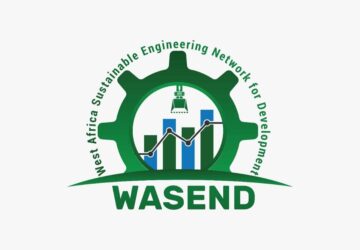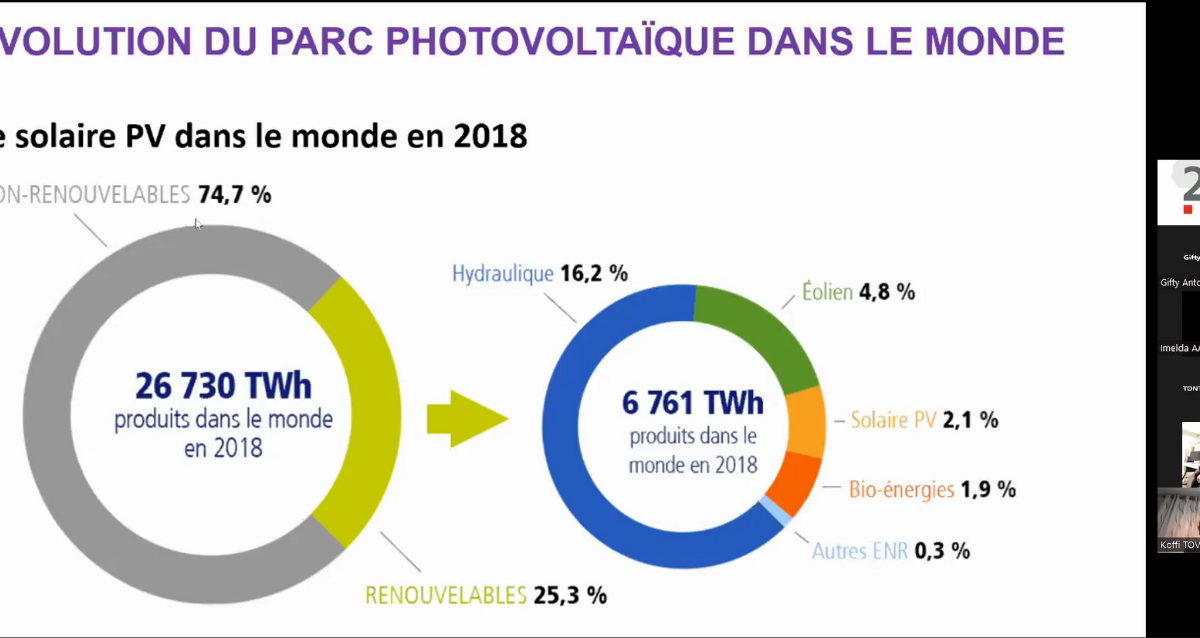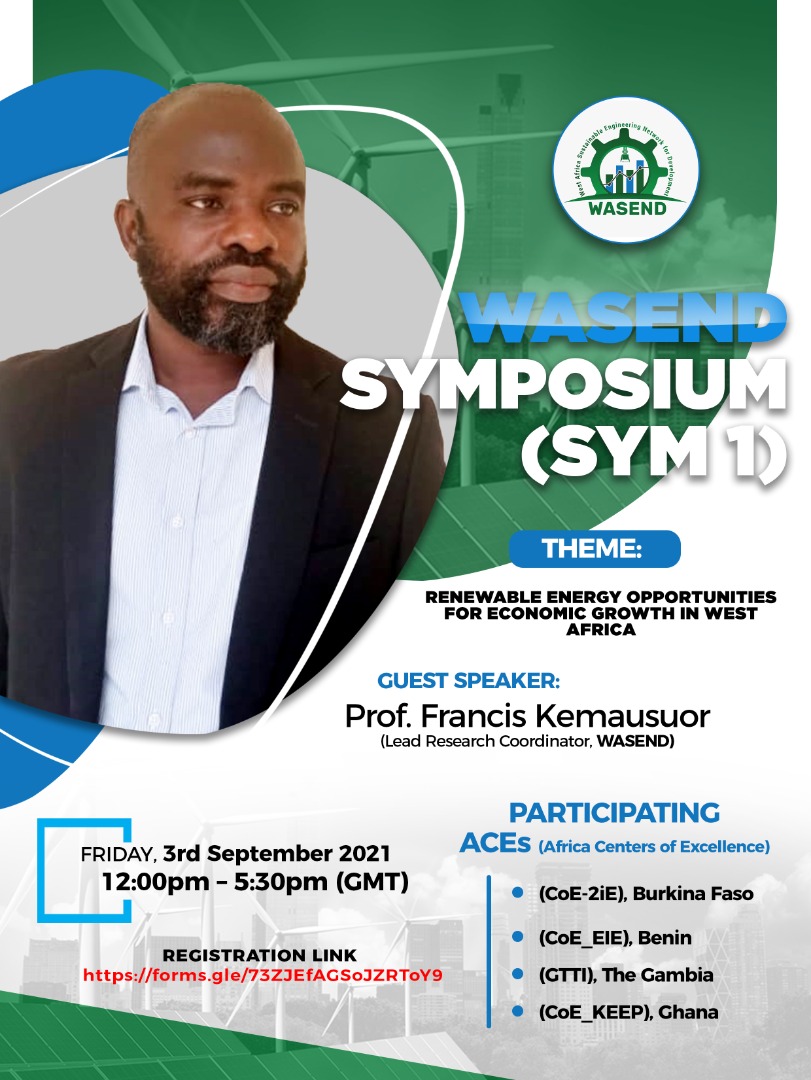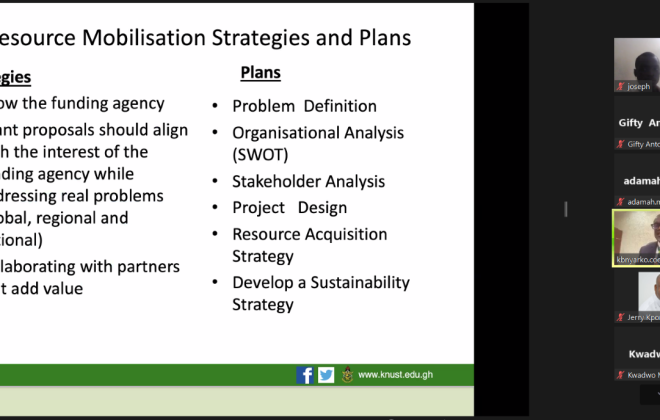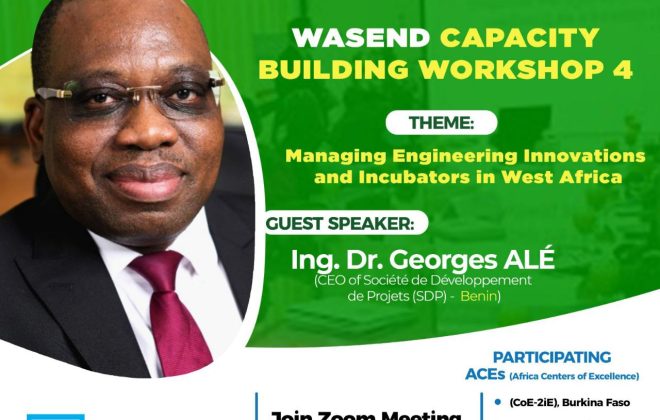ARTICLE ON 3RD WASEND SEMINAR
Ing. Toviawou Koffi reveals the flip side of Solar Photovoltaic (PV) at the 3rd WASEND SEMINAR.
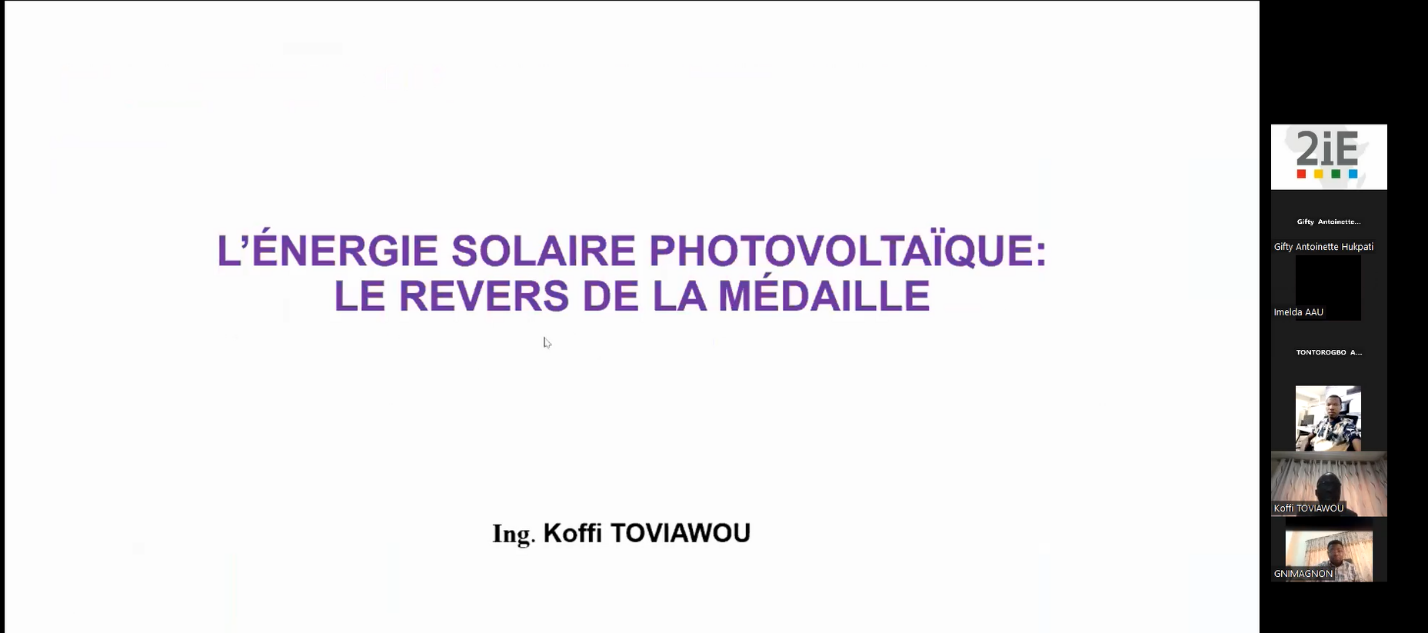
The 3rd West Africa Sustainable Engineering Network for Development (WASEND) seminar was held on the 30th of November 2022 virtually with the theme “Solar PV: behind the scenes” presented by Ing. Toviawou Koffi, Electrical Engineer at the Compagnie Energie Electrique du Togo (CEET).
Prof. Kokouvi Edem N’TSOUKPOE, The Centre Director for 2IE – International Institute for Water and Environmental Engineering, Burkina Faso, welcomed participants to the seminar. He said the focal areas of WASEND are energy and digital development, and the discussion focuses on Solar PV as a renewable energy source.
Prof. Kokouvi Edem N’TSOUKPOE, in introducing Ing. Toviawou Koffi, stated that he is an engineer from the Togolese Electrical Company and the Director of Standards, Quality, Security, and Environment. He said that the Electrical Company of Togo is the National Power Utility that provides electricity in Togo.
“Ing. Koffi was part of the team that built the 50-megawatt solar power plant in June 2021. He is a licensed trainer in the electricity domain and specializes in the security, construction, and maintenance of power lines,” he added.
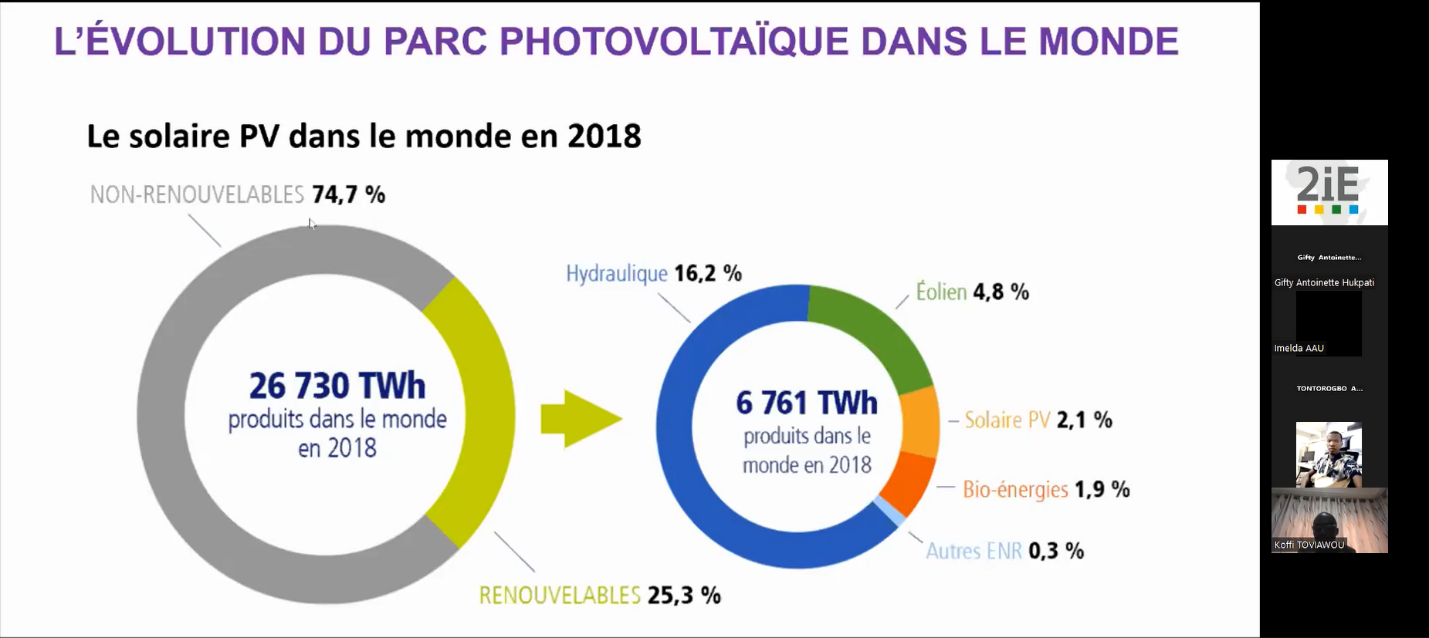
Ing. Toviawou Koffi spoke on the evolution of Solar PV, the limits to the integration of intermittent electricity production, solar PV energies, and the development of African countries.
He said there is always a high demand for electricity in Africa, and people believe Africa has much sunshine and should capitalize on that in producing solar energy. He indicated that, in his personal view, developed countries like China, Europe, and America have good fossil sources.
He cited France as an example of having 75% of nuclear power as energy consumed. He added that these developed countries have the latitude to install intermittent renewable sources, and they can quickly resume fossil supply which constitutes the security of supply in electrical energies. He said this is not the same with African countries.
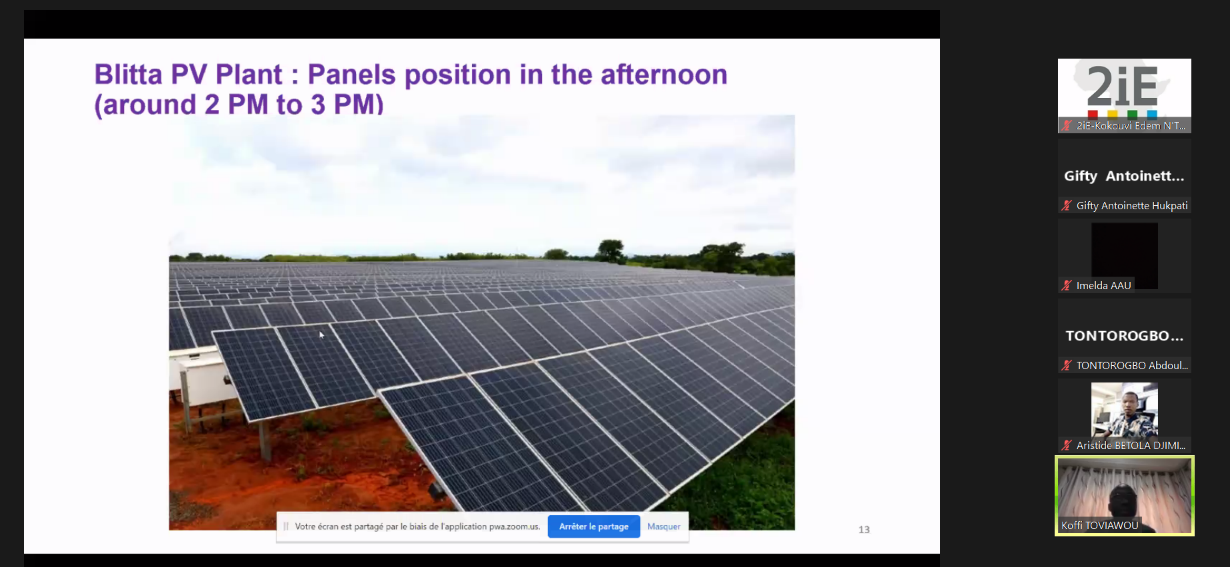
He stated that African countries must be careful in fully integrating solar energy because we cannot develop by relying only on renewable sources. He revealed that solar and wind power are just like the “icing on the cake,” Developed countries already have the cake, but we, as developing countries, do not. He said Africa needs reliable energy sources. He recommended that African countries should build modern nuclear power plants. He said we need enough energy to power railroads, industries, and homes.
Discussions were based on renewable energy sources and strategies for integrating solar energies into the grid system. Ing. Koffi indicated that the solar PV system should be maintained, but we must secure reliable sources to help us develop. He added that we need partners to fund projects such as the electrification of villages and rural areas.
Prof. Kokouvi Edem N’TSOUKPOE, in his closing remarks, thanked the participants and the resource person for the insightful discussions on renewable energies and the way forward for African countries. He commended the seminar and symposium team for organizing such an impactful seminar. He appreciated the communications team, participants from the various WASEND centres, the Association of African Universities, and the translation team for their translation services.
WASEND is a network of World Bank-designated African Centers of Excellence (ACEs) in engineering education and research. The network seeks to leverage the expertise of its members and build synergies to address Sub-regional challenges in energy and digital development.
It is made up of four West African Colleges of Engineering:
- College of Engineering, Kwame Nkrumah University of Science and Technology (KNUST), Ghana
- International Institute of Water and Environmental Engineering (2IE), Burkina Faso
- University of Applied Science, Engineering, and Technology (USET), Gambia
- College of Engineering, University of Abomey Calavi, Benin

